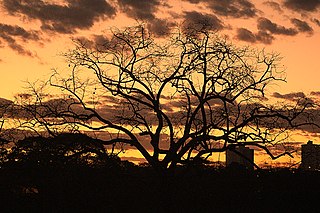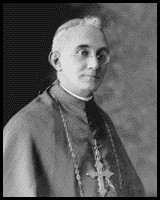Related Research Articles

Brazilian cuisine is the set of cooking practices and traditions of Brazil, and is characterized by European, Amerindian, African, and Asian influences. It varies greatly by region, reflecting the country's mix of native and immigrant populations, and its continental size as well. This has created a national cuisine marked by the preservation of regional differences.

Mato Grosso is one of the states of Brazil, the third largest by area, located in the Central-West region. The state has 1.66% of the Brazilian population and is responsible for 1.9% of the Brazilian GDP.

Cuiabá is the capital city and the largest city of the Brazilian state of Mato Grosso. It is located near the geographical centre of South America and also forms the metropolitan area of Mato Grosso, along with the neighbouring town of Várzea Grande. The city's name is an indigenous Bororo word meaning 'arrow-fishing', The city was founded in 1719, during the gold rush, and it has been the state capital since 1818. The city is a trading centre for an extensive cattle-raising and agricultural area. The capital is among the fastest-growing cities in Brazil, followed by the growth of agribusiness in Mato Grosso, despite the recession that is affecting Brazilian industries. Cuiabá was one of the host cities for the 2014 FIFA World Cup.

The brigadeiro is a traditional Brazilian dessert. The origin of the dessert is uncertain, but the most common theory is that it was created by a confectioner from Rio de Janeiro, Heloísa Nabuco de Oliveira, to promote the presidential candidacy of Eduardo Gomes. It is made of condensed milk, cocoa powder, butter, and chocolate sprinkles covering the outside layer.

The Federal University of Mato Grosso is a public university in the state of Mato Grosso, Brazil. Responsible for serving the entire state, its main campus is in the capital city of Cuiabá. Smaller campuses are located in Barra do Garças, Pontal do Araguaia, Sinop, and Várzea Grande, while the former campus at Rondonópolis is now the Federal University of Rondonópolis, split off in 2018.

Cuiabá Esporte Clube is a Brazilian professional club based in Cuiabá, Mato Grosso founded on 12 December 2001. It competes in the Campeonato Brasileiro Série B, the second division of Brazilian football, as well as in the Campeonato Mato-Grossense, the top flight of the Mato Grosso state football league.
Cuiabá Light Rail is an unfinished light rail in the Brazilian city of Cuiabá, Mato Grosso. Work on the line has been suspended since 2015 due to suspicion of bidder fraud. As of 2021, there is no intention to finish the construction and the system is to be replaced by BRT.

The Massairo Okamura State Park is a state park in the city of Cuiabá, capital of Mato Grosso, Brazil. It preserves an area of typical cerrado forest in a densely urbanised area.
Silvio Favero was a Brazilian politician. He served as a member of the Legislative Assembly of Mato Grosso.
Lambadão cuiabano or simply lambadão, is a style of music and dance characteristic of the Mato Grosso region of Baixada Cuiabana, especially in the municipalities of Cuiabá and Várzea Grande, in Brazil. It is a fast rhythm, characteristic of the periphery, which suffers from prejudice, especially against the more sexualized versions of the dance. Swinging and fast-paced, the rhythm is usually accompanied by romantic or playful lyrics. Despite still being blocked outside the periphery, it has already been incorporated into the local culture.

Miss Mato Grosso is a Brazilian Beauty pageant which selects the representative for the State of Mato Grosso at the Miss Brazil contest. The pageant was created in 1955 and has been held every year since with the exception of 1990-1991, and 1993. The pageant is held annually with representation of several municipalities. Since 2023, the State directors of Miss Mato Grosso are, Muryllo Lorensoni and Nadeska Calmon.

The flag of Mato Grosso is the official flag of the Brazilian state of Mato Grosso. The current flag was introduced on 31 January 1890 by the 2nd Decree of the state of Mato Grosso. It was introduced only 2 months after the Empire of Brazil was overthrown and the First Brazilian Republic was created, making this one of the first Brazilian state flags. As such, it uses the same colors and symbolism used in the Brazilian flag to signify the republican ideals of the founders of the newly formed nation.
Isabella Karolina de Campos Siqueira Carmo, known as Bella Campos, is a Brazilian actress and model who gained notability by portraying the character Muda in Pantanal. Her performance in the role earned her the award for best supporting actress in the 2022 Best of the Year.
Dunga Rodrigues, born Maria Benedita Deschamps Rodrigues, was a Brazilian teacher, musician, memoirist, and author. She established herself as a historian and writer of the culture, history, and literature of the state of Mato Grosso in the 20th century. Rodrigues held a chair at the Mato Grosso Academy of Letters, a rarity for a woman at the time.
The following is a timeline of the history of the city of Cuiabá, Mato Grosso, Brazil.

Francisco de Aquino Correia was a Brazilian Catholic priest, poet, and politician. He was the tenth archbishop of Cuiabá, president (governor) of the state of Mato GrossoA from 1918 to 1922, and a leading cultural figure of the state in the early 20th century. Aquino Correia was an accomplished poet and writer and became the first citizen of Mato Grosso native to belong to the Brazilian Academy of Letters. He was also one of the founding members of the Mato Grosso Academy of Letters and the Mato Grosso Historical and Geographical Institute.

Sobá is a dish from the Brazilian state of Mato Grosso do Sul that is an adaption of Okinawa soba. It is made with wheat noodles, beef, green onion, and omelette strips. The dish is popular in Campo Grande, the capital city of Mato Grosso do Sul, where it is a recognized symbol of the city and the subject of an annual festival.

Augusto João Manuel Leverger, Baron of Melgaço, nicknamed "Cuiabá's Breton", was a French-born Brazilian admiral, writer, historian, geographer and several times president of the province of Mato Grosso in the Empire of Brazil. He was a key figure of Mato Grosso's literary production during his time.

Emanuel Pinheiro is a Brazilian lawyer and politician affiliated with the Brazilian Democratic Movement (MDB). He was a city councilor in the city of Cuiabá, as well as a state deputy. He had been the mayor of Cuiabá from 2017-2024.
References
- ↑ "Cururu, siriri e furrundu: a vida em uma comunidade tradicional no interior de Mato Grosso" [Cururu, siriri and furrundu: life in a traditional community in the interior of Mato Grosso]. ISPN - Instituto Sociedade, População e Natureza (in Brazilian Portuguese). 25 July 2023. Retrieved 29 May 2024.
- ↑ "Doce típico da culinária cuiabana leva 5 ingredientes; aprenda" [Cuiabá's typical sweet takes 5 ingredients; learn how]. G1 (in Brazilian Portuguese). 5 April 2018. Retrieved 29 May 2024.
- 1 2 Moraes, Lidiane (7 April 2022). "Em tempos de guerra, tronco de mamoeiro vira doce caseiro: furrundu" [In times of war, the trunk of a papaya tree becomes a homemade sweet: furrundu]. Primeria página (in Brazilian Portuguese). Retrieved 29 May 2024.
- ↑ "Festival de Inverno tem gastronomia com furrundu e castanha baru com chocolate; veja programação" [Winter Festival features furrundu and baru nuts with chocolate; see the program]. G1 (in Brazilian Portuguese). 30 June 2022. Retrieved 29 May 2024.
- ↑ "Com sabor de doce típico cuiabano, cerveja artesanal ganha prêmio no Chile" [Tasting like a typical sweet from Cuiabá, craft beer wins award in Chile]. G1 (in Brazilian Portuguese). 17 October 2018. Retrieved 29 May 2024.